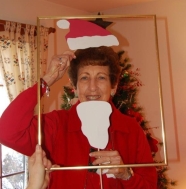We’re being held accountable to our biases. To take a look. To think. Years after this experience, I want to sweep it under a rug. Claim it doesn’t inform how I think and how I react. And that would be a lie.
Black and the Big Toy Box at Sears
![Jeri Sands [Preston] Sr Pic 1978](https://pjeri.files.wordpress.com/2020/07/jeri-sands-preston-sr-pic-1978.jpg)
Alright, then. When I was in high school in the 1970s, a kid could expect to get a retail job during the holidays to put a bit of ready cash in our bank accounts, allowing us to buy family gifts and to save for college. Actually, it was almost pro forma; every one of my middle class friends were expected to do it.
And so, I happened to apply at the Jackson (MI) Sears store in Paka Plaza, as it was known at the time, for holiday employment. Many department stores converted warehouse and storage spaces into a wonderland of toys for the holidays, filled, at least early in the season, with Stretch Armstrong, and Hot Wheels, and Easy Bake Ovens, and Barbie Dream Houses. I got a job as Santa’s helper at the Big Toy Box at Sears. And on this job, I ran into Bennie.
One of the first nights I worked, he came around the corner of the Big Toy Box warehouse and I nearly jumped out of my white skin. He was the first black man I had ever encountered on my own. I’m sure that revealed my physical reaction to his nearness. I was too culturally insensitive and sheltered to hide it.
From then, on, every time we worked together, Bennie would advance on me. Make a gesture, like quickly twitching his shoulders or slightly moving his arms toward me. He would grimace and his eyes would narrow. And then, in unfeigned disgust, he would walk away. By these motions, I extrapolated that he meant me harm. I dreaded being assigned together on our Toy Box shifts.
Let’s turn back the clock one or two ticks. I had previously lived in Norwalk, OH, where I did not know one black or brown student until seventh grade. For one year, in eighth grade, I moved to Cleveland, OH, but my newly expanded cultural experience was by meeting Poles, learning from food and family gatherings of people with the last names Tomasko, Misechko, and Timko.
Jackson, however, was culturally divided by Francis Street. On my side, unbeknownst to me when I moved in ninth grade (1974), the whites lived. Cross Francis? That was the neighborhood of blacks. I had never lived anywhere like it. I saw life by spending the majority of my years in the sepia tones of rural America, but here, there was Francis Street and Stonewall Road. By my senior year, I knew you could define yourself by your proximity.
And boy, howdy, did Bennie’s proximity scare me witless.

I never saw him there, but Bennie and I went to the same high school. Turns out at graduation, as I came sidling across the folding chairs toward the center aisle, Bennie came out from the opposite side. He caught my eye. He did a chin-up nod and cracked a smile, which made me suddenly realize he had beautiful teeth and was pretty good looking. We were walking partners to the stage.
Today, I look back at the Big Toy Box and wonder. Forty-two years ago, what would’ve happened if I had not been such a racist? What if, instead of jumping, I had smiled? Said hi? Asked about his favorite subjects at Parkside? Can you imagine going to work knowing some lily-white girl was going act like you were going to jump her, each and every time you saw each other, over the holidays? Why wouldn’t some exasperated, frustrated, harassed part of you act like you were the embodiment of her worst, inaccurate fears?
Black Lives Matter: #BLM
Growing up in white, rural Ohio, I was aware of MLK: he had a dream, but he was shot and died. When I was an adolescent in Cleveland, I heard vaguely about the Detroit riots: Black Panthers were armed and dangerous. When I lived in Jackson, MI, I knew that there was a white side of town and a black side of town. As an adult, I’ve moved across the country, from LA, to Philadelphia, to Detroit, and I thought I knew. I liked the phrase “all lives matter” because it made me feel better, more hopeful, less guilty. One day not too long ago, I repeated that phrase to a white friend and colleague. Her face – and she is one of the kindest people I know – said it all and started my education regarding racism.
For years, my kids and I have watched “The Life and Adventures of Santa Claus.”* To understand humanity, Claus is taken on a tour of the world to see children far and wide. In one scene, a feudal lord smacks his lips while feeding his family on the beets that were literally beaten from the hands of their serfs. The lord says to his servant, “Teach them to read! Before long, they’ll want what we’ve got. We can’t have that, can we, Jameson?” To which the retainer replies, in long British tones, “Of course not, sir.”
Of course they want what we’ve got: the ability to walk without being feared or threatened. The ability to get better jobs, live in better neighborhoods. Who wouldn’t? But if they rage against the injustice, appear threatening, make a motion, even take a knee, we quiver. Better to shut them down, we reason, for the smallest infringement in order to prevent the heinous. We do this even as we blithely excuse our white neighbors. A white person can rage against cops in a capitol building while carrying a gun. A black person? Shot, because we feel threatened. You’d think I would’ve made a more direct correlation to this Christmas show made not too long after my high school graduation, but I didn’t until I saw the video of Kimberly Jones, where she said, “And you’re lucky that what black people are looking for is equality and not revenge.”
There was plenty of space in the Big Toy Box at Sears even though, day after day, I jumped and jumped and jumped. There was room to walk toward a diploma together. For years, I had room to educate myself, but I didn’t. Of what was I afraid?
I fear the coronavirus, but you know what? At some point in the not-too-distant future, I believe society, especially our scientists and medical professionals, will master the testing and find a vaccination. This isn’t forever. You know what feels like forever? When people are too stubborn to look a black or brown person in the eye, to smile, to talk, to listen, and to share resources for four hundred years and counting. 400 years! Using the broadest definition of a generation, that’s 12 generations of racism in America, since we brought black people here and sold them into slavery. Not only was the ‘Toy Box’ big enough all four centuries, this country and its people are big enough. It’s time.
*1985 Rankin Bass
[The feature images is actually of a Marshall Fields store at Christmas, but it resembled the Toy Box enough for me to use it.]











 A few tiles fall from a roof across the corsia. Shoddy workmanship? No, for the earth moves.
A few tiles fall from a roof across the corsia. Shoddy workmanship? No, for the earth moves.
 amazingly fragile glass. How, precious flask, did you survive twenty-eight feet of ash?
amazingly fragile glass. How, precious flask, did you survive twenty-eight feet of ash?


Recent Comments